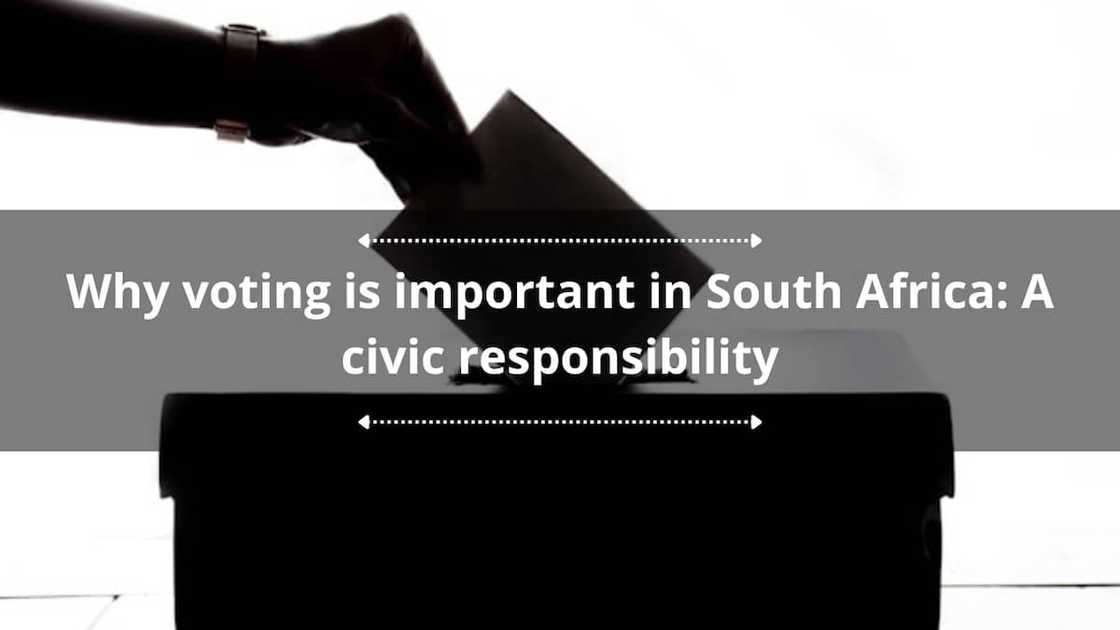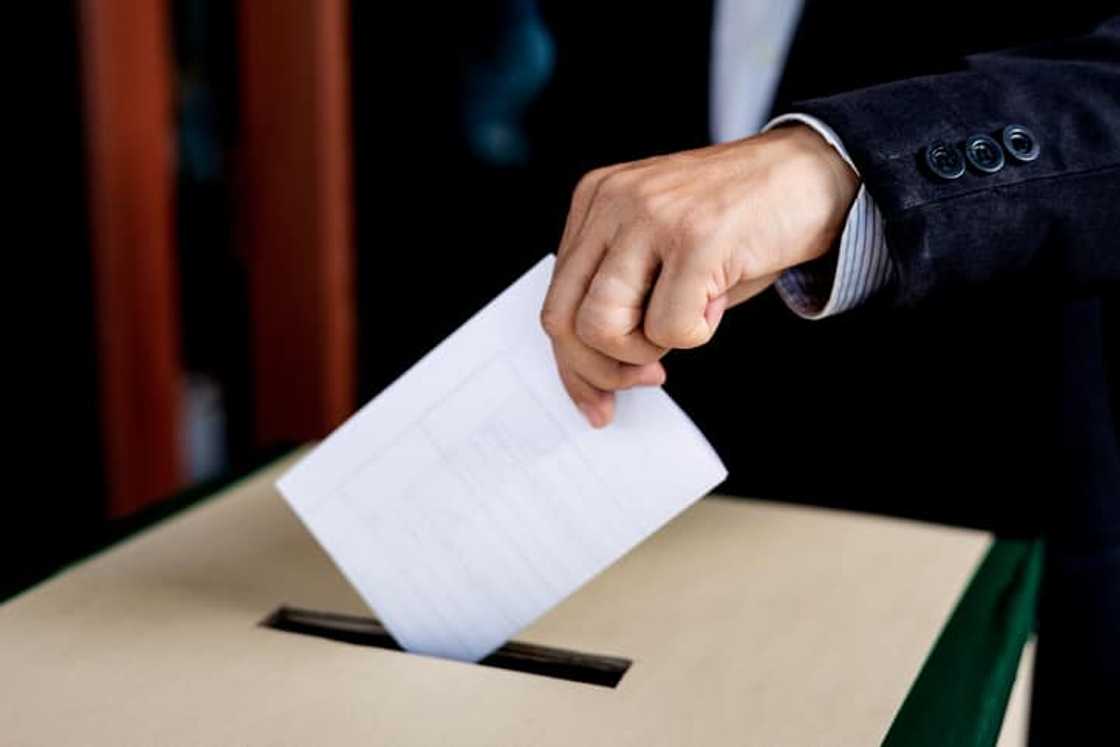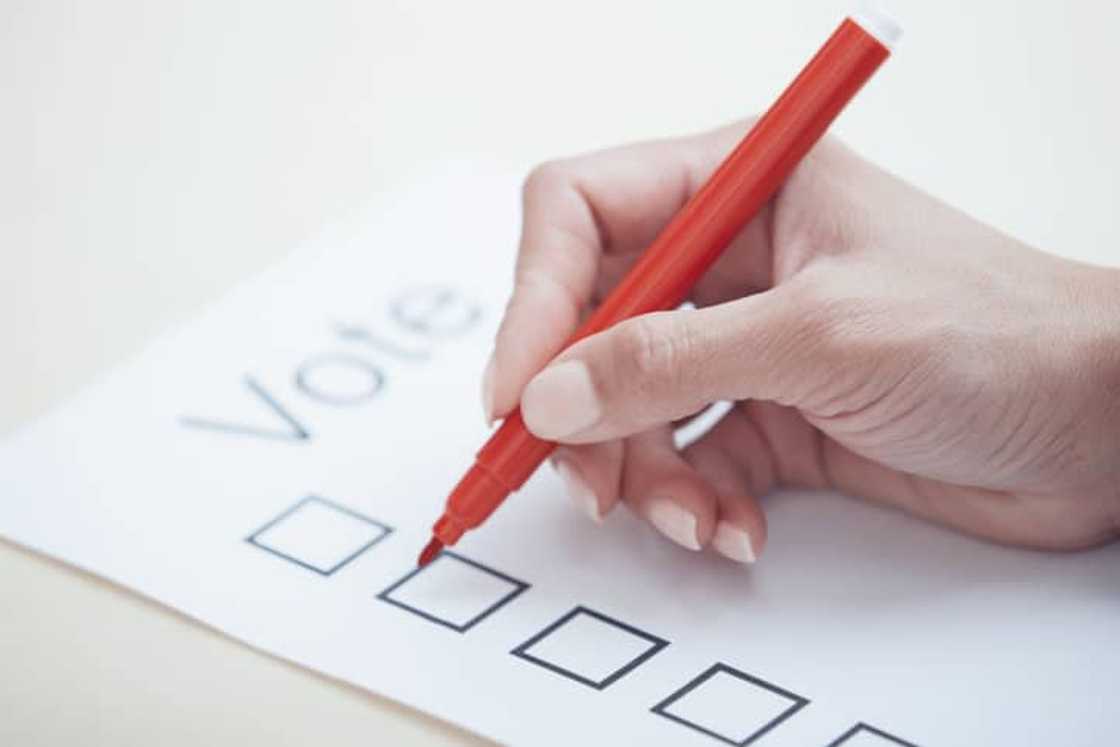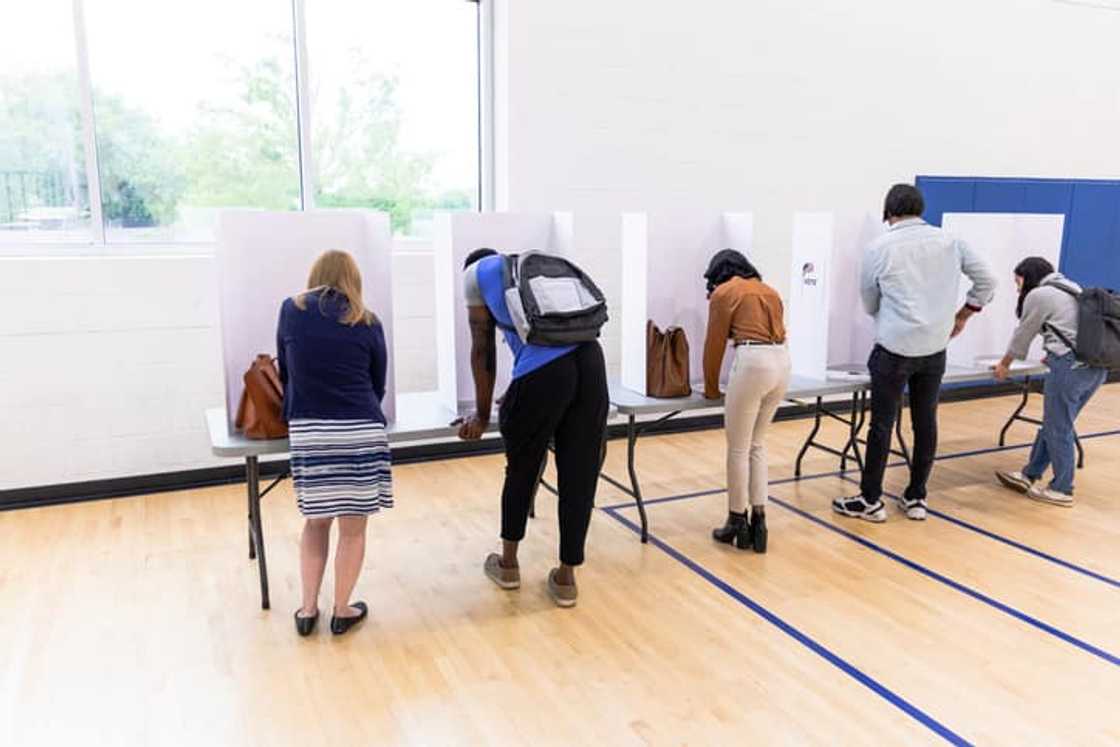10 reasons why voting is important in South Africa: A civic responsibility
Are you a South African, and have you often wondered if and why you should participate in electing leaders in your country? There are over ten reasons why voting is important in South Africa. This is to help you find a solid footing to fight against apathy and indifference.

Source: UGC
TABLE OF CONTENTS
- Why do people vote in a democratic country?
- 1. It helps to uphold the rule of democracy
- 2. It is a way of honouring those who ensure that the right to vote is available
- 3. It shapes the nation's local and foreign policies
- 4. Increased amplification of citizens' voices
- 5. It promotes inclusiveness and equality of interests
- 6. Ensures the protection of human rights
- 7. It fosters civic engagement
- 8. It allows the voters to hold elected representatives accountable
- 9. It promotes proper and fair representation
- 10. It strengthens democracy for generations unborn
- What happens if you don't vote and you're registered?
In most modern countries, leadership is a deciding factor in determining how progressive a nation and its people are. The economic, political, and socio-cultural atmosphere of states governed by responsible leadership has shown several advantages to voting.
Why do people vote in a democratic country?
Voting is a crucial aspect of democracy, as it empowers the citizenry to participate in shaping their country's economic and political future. Below are ten convincing advantages of voting.
1. It helps to uphold the rule of democracy
Voting is essential for a democracy to be differentiated from other forms of governance like authoritarianism and totalitarianism. It makes sure that elected representatives are sworn into power by the people and for the people to safeguard equality and autonomy.
The right to vote preserves the electorates' sovereignty over who represents their interest. High voter turnout ensures the government reflects the people's will, legitimises its power, and strengthens democratic principles.
2. It is a way of honouring those who ensure that the right to vote is available
In political history, several individuals have fought without care for imprisonment and shedding their blood to ensure that the future generation gets the right to vote. Some of these people never enjoyed the fruit of their labour, but their tenacity sparked a nationwide cry for equality.
3. It shapes the nation's local and foreign policies
Why is voting important for citizens? Every vote determines the nation's future, a product of the government's operating policies and prerogatives. When citizens participate in elections by voting, they indirectly choose how vital issues are addressed.

Source: Getty Images
Individuals elected often seek power by convincing the people that they have the brightest ideas to solve national problems. Active participation in the voting process ensures that enacted policies are in tandem with the people's collective will.
4. Increased amplification of citizens' voices
Voting serves as a medium for South Africans to intensify their advocacy for change and a country that works better. It makes sure that every citizen can determine decision-making processes.
Voting is a direct channel for expressing opinions and preferences. By participating in elections, citizens ensure that elected representatives hear and consider their concerns. This expression of voice in unison is necessary for an inclusive democracy.
5. It promotes inclusiveness and equality of interests
Everyone must be allowed to exercise their voting franchise, regardless of background and status. As such, exclusivity and participation in elections guarantee that diverse voices are reflected in governance.
A voting population contributes to constructing an equitable society where all rights and interests are represented and respected. For a nation like South Africa, which has several tribes, this has become a crucial aspect of the nation's democracy—the evaluation of diverse perspectives.
6. Ensures the protection of human rights
Voting has a link with human rights protection. It is a tool for facilitating the freedom of South Africans to express, assemble, and associate, which is essential in a democratic society.

Source: Getty Images
By going to the ballot, individuals advocate for policies and officials who will prioritise upholding human rights issues such as the right to life, personal dignity, liberty, and privacy in family life.
7. It fosters civic engagement
Civic responsibility is cultivated, and voting is a significant aspect of civic education. Individuals are more informed about matters arising in their communities and can engage in helpful discourse to propose solutions.
Voting encourages other civic responsibilities, including community activism and volunteering. This indicates citizens' commitment to shaping the narrative of their communities and nation.
8. It allows the voters to hold elected representatives accountable
Elections allow citizens to hold elected officials responsible for their decisions and actions. Individuals support leaders who prioritise their preferred policies while replacing those who have reneged on their promises to the people.
This accountability mechanism ensures that policymakers remain responsive to the concerns and needs of the people they represent. This stresses the importance of voting in civic education.
9. It promotes proper and fair representation
Voting ensures that the population's diversity is represented in the character of elected government representatives. It also ensures that marginalised populations have a say in decision-making processes because although the majority carries the vote, the concerns of minorities must also be addressed.
Voters can align with leaders representing their values, priorities, and interests. This mitigates the prospect of a single ideology or group-dominating policy.
10. It strengthens democracy for generations unborn
Citizens who vote actively contribute to protecting and strengthening democracy for future generations. Voting shapes a nation's economy and policy with its regional and foreign counterparts.

Source: Getty Images
What happens if you don't vote and you're registered?
There is no legal reprimand for someone who registers and chooses not to vote. This is because the right to vote also precludes the right not to vote. However, a person who chooses not to vote must understand that they are subject to the policies enacted by an elected representative; it does not matter if they support such an official.
As provided above, the ten reasons why voting is important in South Africa are not exhaustive. However, it must be noted that voting is the norm of democracy. It is not just any right but also a fundamental responsibility that must be exercised and carried out carefully.
DISCLAIMER: This article is not sponsored by any third party. It is intended for general informational purposes only and does not address individual circumstances. It is not a substitute for professional advice or help and should not be relied on to make decisions of any kind. Any action you take upon the information presented in this article is strictly at your own risk and responsibility!
READ ALSO: Register to vote in South Africa: Everything you need to know
As published by Briefly, the Independent Electoral Commission (IEC) or Electoral Commission of South Africa oversees the electorates' registration and elections countrywide.
You register as a South African voter once unless the constitution changes your voting district boundaries or you relocate from one place to another.
Source: Briefly News

